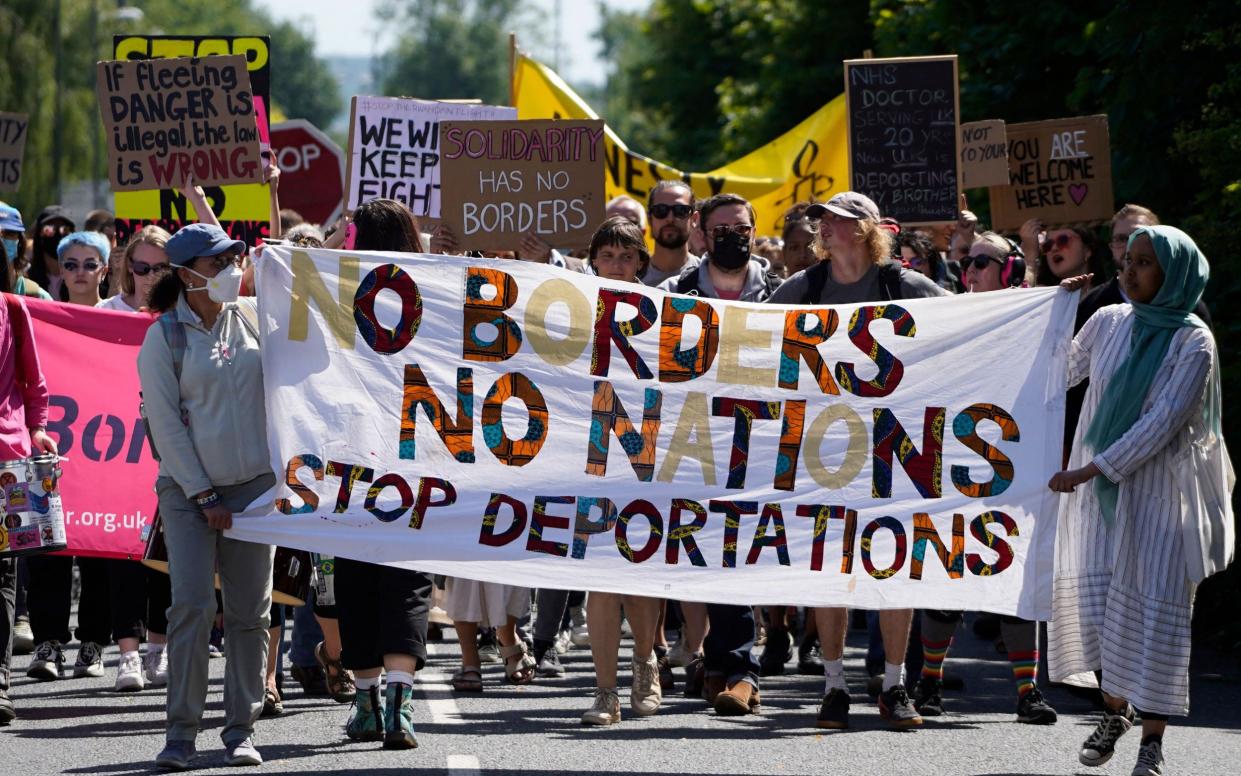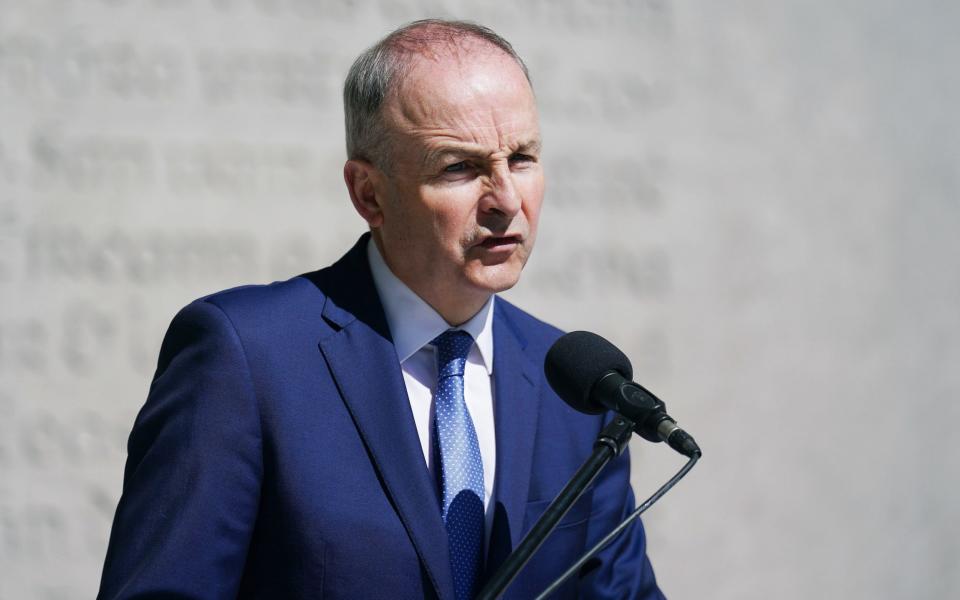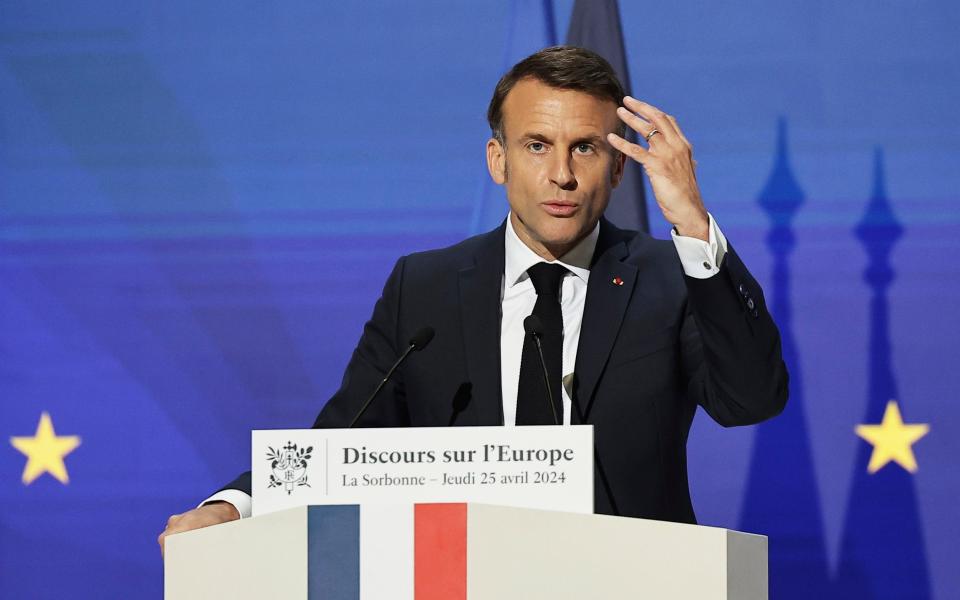Rwanda Bill has caused migrants to pour into Ireland, says deputy PM

The threat of being deported to Rwanda is causing an influx of migrants from the UK into Ireland, the country’s deputy prime minister has complained.
Micheál Martin said that the policy was already “impacting on Ireland” as people were “fearful” of staying in the UK.
“Maybe that’s the impact it was designed to have,” the former Taoiseach said after Dublin revealed that 80 per cent of recent asylum seekers in Ireland had come into the country from Northern Ireland.
The Rwanda Bill, under which asylum seekers will be flown to live in the central African nation, was passed in Westminster on Tuesday after months of difficult negotiation and accusations it violated human rights.
Mr Martin’s comments came as Downing Street rebuked Emmanuel Macron for describing the Rwanda policy as a “betrayal of values” that would prove “totally ineffective”.
Tensions over immigration are high in Ireland, amid an increase in migrant arrivals and an acute housing crisis that has forced some asylum seekers to sleep in tents.
More than 140,000 immigrants arrived in Ireland in the year up to April 2023 – a 16-year high.
The figures from the Central Statistics Office showed net inward migration of 77,600 after emigrants were stripped out, amounting to a 50 per cent increase over the previous year.

Mr Martin, who is also Ireland’s foreign secretary, said that asylum seekers were seeking “to get sanctuary here and within the European Union as opposed to the potential of being deported to Rwanda”.
Dublin believes migrants and refugees, many from Nigeria, are travelling from Britain to Northern Ireland before crossing the land border with the Republic, which is open as guaranteed by a UK-EU Brexit treaty.
“We have 11 million people displaced from Ukraine and millions in Sudan,” Mr Martin said on Wednesday during a trip to Jordan. “But the sort of knee-jerk reaction like the Rwanda policy, in my view, isn’t going to really do anything to deal with the issue.”
During the Brexit negotiations, Dublin insisted that the border on the island of Ireland be kept “invisible” without infrastructure such as checkpoints. It argued this would protect the peace process and safeguard Ireland’s place in the EU’s Single Market.
The UK and EU ultimately agreed to create the Irish Sea border between Britain and Northern Ireland, which is now known as the Windsor Framework.
“This is the challenge that we have, that we have advocated for an open border on this island,” Helen McEntee, the Irish justice minister, told a scrutiny committee earlier this week. “It is absolutely a challenge.”
Tory MPs said that Mr Martin’s comments showed the policy was having the effect intended despite criticism of the plans from Europe.
Marco Longhi, a member of the home affairs committee, said: “The fact that asylum seekers are now starting to go elsewhere is clear evidence that the deterrent effect is taking place.”
A source close to James Cleverly, the Home Secretary, said: “The message of the Rwanda partnership is ‘if you want to come to the UK, and you do so illegally, you will not get to stay in the UK’. That is the point of a deterrent.”
Richard Tice, the Reform UK leader, referring to the Brexit deal on the Irish Sea border, said: “Oh the irony of the Irish Republic whining about the very border arrangement they insisted upon with the Protocol.
“Truth is, as usual, Irish leaders blame Brexit for all their own failings.”
It came as Mr Macron said he did “not believe in this model that some people want to put in place which means that you go and look for a third country, for example in Africa, and take people there who arrived illegally on our soil who don’t come from that country”.
“This will create a geopolitics of cynicism that is a betrayal of our values. It will create new dependencies and will prove totally ineffective,” Mr Macron said in Paris on Thursday.
Rishi Sunak’s spokesman said: “We don’t agree. We think that our approach is the right one.
“In terms of breaking the business model of the criminal gangs, we’ll need a strong deterrent.”

Mr Cleverly, the Home Secretary, also hit back, saying that third-party agreements to tackle migration were “not anything new” and were recognised as international solutions.
However, earlier on Thursday he appeared to downplay the importance of the Rwanda plan when he was asked whether it was at the centre of his plan to tackle illegal migration.
“No, it’s not,” he said at a lunch with journalists. “Not mine.”
The comments appeared to be an attempt to shift the responsibility for the Rwanda plan. The Prime Minister has made Rwanda a key part of his pledge to stop the boats.
Tory MPs also hit out at Mr Macron for his dismissal of the Rwanda policy.
David Jones, the Tory MP and the deputy chairman of the European Research Group, said: “Mr Macron’s criticism might be more tenable if, in return for the £500 million the UK pays to France, he were to tell French police to stop illegal migrants boarding their dinghies on the Channel beaches, rather than standing by and watching them.”
He added: “It’s very hard to see how the Rwanda effect can have caused the difficulties Ireland is now facing – the legislation was enacted only this week.
“The fact is that all of Europe is facing huge challenges caused by international human traffickers. Ireland and the rest of the EU – especially France – should work with the UK to address the problem.”
“So much for the Entente Cordiale: what a bloomin’ cheek,” said Mark Francois, the chairman of the European Research Group of MPs.
In March last year, Mr Sunak and Mr Macron agreed a deal to tackle the small boats illegally crossing the Channel.
Under its terms, Britain agreed to pay France about £480 million and fund a detention centre over three years. Paris agreed to increase patrols of its beaches.
At the time, Mr Macron said the UK should try to strike a replacement EU-wide migrant returns deal but that has been ruled out for the foreseeable future by European Commission sources.

 Yahoo News
Yahoo News 
